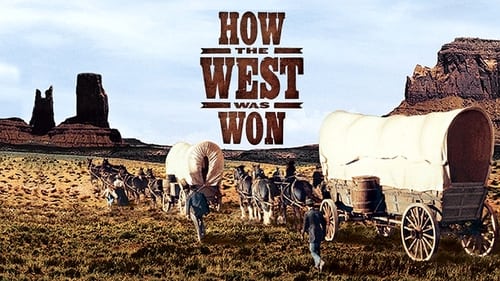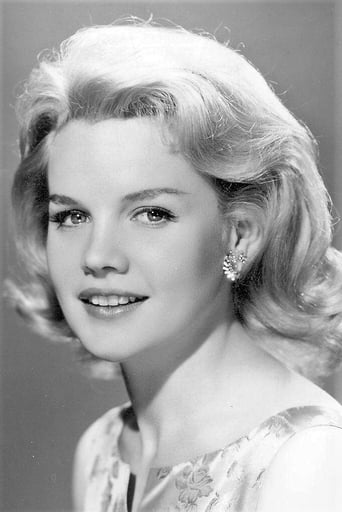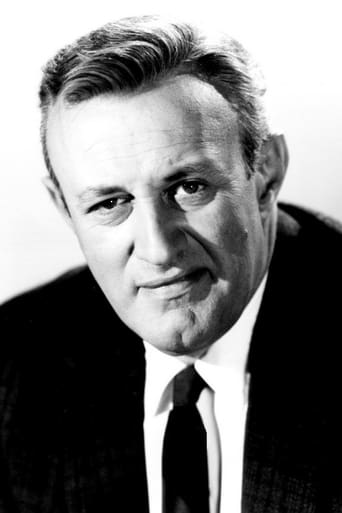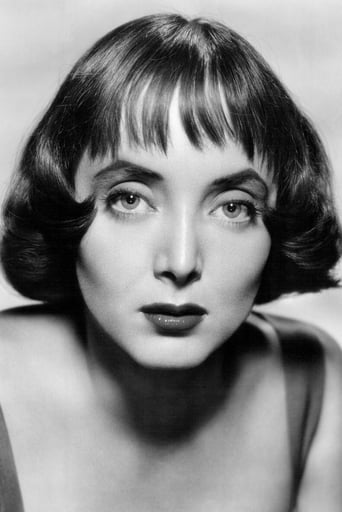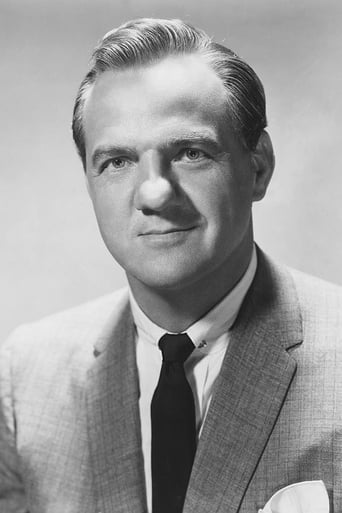ElMaruecan82
For someone who grew up reading "Lucky Luke" comic-books, I could always spot which film inspired a specific adventure, but in the case of "How the West Was Won", it's almost a kaleidoscope of all the Western archetypes the authors used to nourish their fertile imagination. Indeed, there's an adventure about pioneers, homesteaders, telegraphs, dance-halls, Pony Express, Indian Wars, desperadoes and so on and so forth. Indeed, you could become an expert about the Old West just by reading the entire collection of "Lucky Luke", a Belgian creation, and yeah, I mean it.But the merit of "Lucky Luke" is to have used the Western archetypes as backdrops to stories meant primarily to entertain, the trap where "How the West Was Won" has fallen is that the stories become the backdrop and it doesn't quite work. Sure, you expect a film to provide the elements of its genre, but the story is here to elevate it beyond the obligatory archetypes. There's a root within the requirements of the genre but the reach of a film should be more global, except for a documentary. Indeed, would I have enjoyed a documentary on the same subject better than the same thing being wrapped up into artificial stories? probably.There was a problem with the overall approach because the film had the epic-scale, the material, the budget and the potential to be one of the best documentaries of its era, it would have been an ahead of its time approach, but instead, it chose to be an ode to old-school Hollywood clichés, which makes it even more obsolete than the stuff it pays tribute to. A shame because as soon as the opening monologue starts with the reassuring voice of Spencer Tracy, and presents the vertiginous aerial shots of the Rocky Mountain worthy of a National Geography program, we feel we're onto something special, sure, there are a few lexical blows to political correctness mentioning how the land was taken from the primitive man, but at least it acknowledges that it was taken, and after all, in a film that makes such a glorious ode to "progress" and civilization, what did we expect?One of the film's most beautiful shots, if not the most, occurs right in the beginning when a fur-trapper is slowly paddling over a canal, giving us enough time to admire how the mountains in the landscape are beautifully reflected in the river. The film was known for having been shot in Cinerama, a process that needed the used of three cameras to produce a sort of king-size image, in reality the superposition of three different shots with various tricks used to dissimulate the intersections but the result could be spectacular, as it really gave you the "big picture", pun intended. In that magnificent image of the fur-trapper, you forget that you're actually watching James Stewart. Which is the point of a good film, forget about the cast, just enjoy it.The problem is… this feeling doesn't last, and the obsession with reuniting all the Hollywood stars in that one big, epic scale undermines the immersion into the story. To a certain degree, you're busy trying to spot the actors than what their characters say or do. You name them, they're all here, as a matter of fact, it would be easier to tell you who is not in this picture. This confines to pure contrivance and affects the enjoyment. By choosing to focus on one family saga whose center of gravity is Debbie Reynolds who starts as the free-spirited daughter of Puritan pioneers, then a dance-hall performer, then the wife of a gambler, the film kind of loses that epic flavor and the whole Cinerama that had a point in the earlier scenes becomes a shortcoming rather than a strength, because the actors had to adapt to that new format, creating very awkward situations.But as a way to justify the heavy and expensive process that bothered all three directors involved in the film, Henry Hathaway, George Marshall and John Ford to name them, the film still offers all the big-scale archetypes of the Western genre, desperately trying to enrobe it with some 'history' flavor while there's more originality in five minutes of any classic Western than the three-hour platitudes and clichés we're forced to endure. And it's not the least to say that all the prestigious filmmakers involved in the project had quite an unpleasant experience and had to bother with three cameras for a movie whose whole publicity relied on the parade of stars it featured. Still, except for the big names like John Wayne and if it wasn't for Henry Fonda's voice, I would not have recognized her.Yet this film is a classic of the genre and even won the Best Screenplay, but it was made at a time where a young filmmaker named Sergio Leone would dust off the Technicolor heritage of old-school Western and gives it a new fresh of breath, using even Henry Fonda in a role worthier of his talent, even John Wayne would throw away his heroic monologues and play his Oscar-winning Rooster Cogburn in Hathaway's "True Grit", John Ford would have made another anti-Western with "Liberty Valance". "How the West Was Won" sounds more like a self-conscious, even pretentious, tribute to a genre that deserved just a good story or at least a simple documentary.No offense, but why go to such extents to only make the Civil War less significant than Debbie Reynolds' story, and have that ridiculous shootout climax? The West deserved better and the film isn't even enjoyable as a guilty pleasure. It even believes it's so great it had to be made even longer with the usual 'preludes' and 'interludes' as if it was the equivalent of "Gone With the Wind" and "Lawrence of Arabia". Well, the only spot it deserves among these masterpieces is in AFI's Top 25 Scores, the music is the only classic thing about it.
Michael_Elliott
How the West Was Won (1962) *** 1/2 (out of 4) Epic and landmark Western has three directors telling the story of a group of travelers heading from the East and marking on a journey through the West. Throughout the decades we see them heading out West and then taking part in a variety of stories including those dealing with the railroad, The Civil War and a grand voyage down a dangerous river.An epic such as this could only be filmed in the then hyped up Cinerama and of course you needed epic directors like John Ford, Henry Hathaway and George Marshall to bring it to the screen. Throw in the all-star cast and you're really left with a film that has to be seen and, if you can, see it on as large as a screen as possible. Thankfully I got to view the film in the theater and it's certainly unlike many other adventures on the screen. I think a lot of the credit has to go to the Cinerama. Yes, you get two black lines down the screen and it's easy to see why this gimmick didn't last but at the same time, looking back at these films today, they're just something unique about such a wide image.There's no question that there are some flaws to be found in the film and this includes the actual stories. Even though we've got a running time of 166-minutes, that's still not long enough to really tell the history of the West so what we've got is small stories set during these historic events. The first two stories before the intermission deals with love stories, which might sound corny but it actually works quite well and just think how many years this was before TITANIC. The stories themselves are all "B" material but you're still highly entertained thanks to the director's work behind the scenes as well as the excellent cast members. You can look up the cast yourself and just see how many legends are on one screen. Some like John Wayne just make cameo appearances but there's still some very good work here by the likes of James Stewart, Debbie Reynolds, Gregory Peck, Carroll Baker and Richard Widmark.The Cinerama is something that's hotly debated by film buffs but I think the locations are beautifully captured here. The scenery just leaps off the screen and especially early on. The sequence dealing with the family moving down the river is full of adventure and excitement. Once the twist in the story happens and Stewart must seek revenge, there's no question that it packs a punch. The wagon trail sequence with Peck is also extremely entertaining and features some great action. I actually found Ford's stuff with The Civil War to be the weakest element of the picture but things pick up for the climax and a wonderful shoot out on a train.HOW THE WEST WAS WON certainly has a fair amount of flaws but there's still no question that it's one of the most beautiful films to look at and it features a terrific cast so there's no getting bored through the long running time. If you're going to see the film it's certainly best that you try to seek it out on as big as a screen as possible, the way it was meant to be seen.
cricket crockett
. . . this often self-contradictory, poorly acted, and downright boring alleged "epic" constitutes a large portion of the pack of lies Grandma and Grandpa were spoon-fed growing up. Only James Stewart and Debbie Reynolds stay on the screen long enough in HOW THE WEST WAS WON to make any impression at all. Top-billed actors such as John Wayne, Karl Mulden, and Lee J. Cobb appear in laughably short cameos. Since 20 minutes of the 164-minute running time is devoted to entrance, intermission, and exit music or credits, only the opening 40-minute "River" part has any meat on its bones. Director John Ford's 20-minute "Civil War" piece is a total joke, and director George Marshall's 22-minute "Railroad" segment is simply a stunt to set up a buffalo stampede. Ditto main director Henry Hathaway's closing "Outlaws" portion, tacked on so "Cinerama" could show a train breaking apart. Hathaway follows his "River" opening part with a somewhat watchable "Plains" story, with a hard-to-like Gregory Peck dueling an even more unlikable Robert Preston for Debbie Reynolds. "Here came the dreamers, with Bible, fist, and gun" blares the chorus as it sings the HOW THE WEST WAS WON title song. "Virus, fist, and gun" would be far more accurate, and most people watching this movie will pull for the Arapaho to prevail with an even stronger virus of their own! Since that does not happen, narrator Spencer Tracy babbles that "the West's names, and the land all HAD to be won from primitive man" in the movie's opening manifesto. How could such a noted actor be so uneducated? If he had even bothered to watch this flick, he would have seen that the Arapaho were the ONLY noble souls in the whole picture! Tracy later states, "This land was known as the West, known to only a handful of White men." I have news for you, bub. The First Peoples knew every nook and cranny and named everything long before "Columbus sailed the ocean blue."


